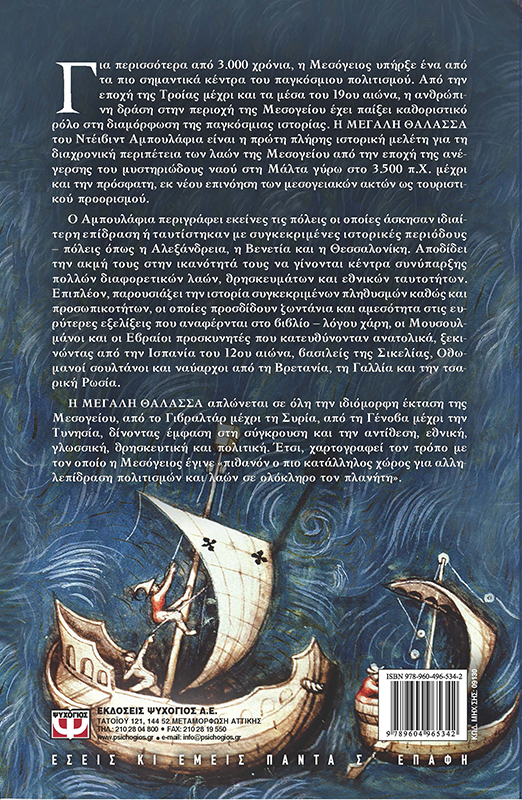

Indeed, there is something almost eerie about the polymathic quality of Abulafia's knowledge. From the hominids who, as early as 130,000 BC, made their way from Africa to Crete bearing quartz hand axes, to the recent debt crisis in Greece, all of Mediterranean history is here. A sweeping claim – but one more than backed up by a sensationally sweeping book. Wide enough to support radically distinctive civilisations, and yet narrow enough to ensure ready contact between them, the Mediterranean became, in Abulafia's opinion, "probably the most vigorous place of interaction between different societies on the face of this planet". Such is the paradox that provides David Abulafia, in his magnificent and quite stunningly compendious history of the Mediterranean, with a key to unlocking its rich and turbulent past.

The Mediterranean, as it has always done, serves to join as well as divide. Tourists on Lampedusa – if they look out to sea from the beaches and nature reserves of that picturesque Italian island – may well see makeshift boats bobbing towards them, crammed to bursting with refugees from the turmoil in north Africa, a mere 70 miles away.

The two halves of the Mediterranean will seem, even more than usual, entire worlds apart. T his summer, as Europeans sprawl on sunbeds in Málaga and bare their breasts in Faliraki, Libyans will be killing one another.


 0 kommentar(er)
0 kommentar(er)
